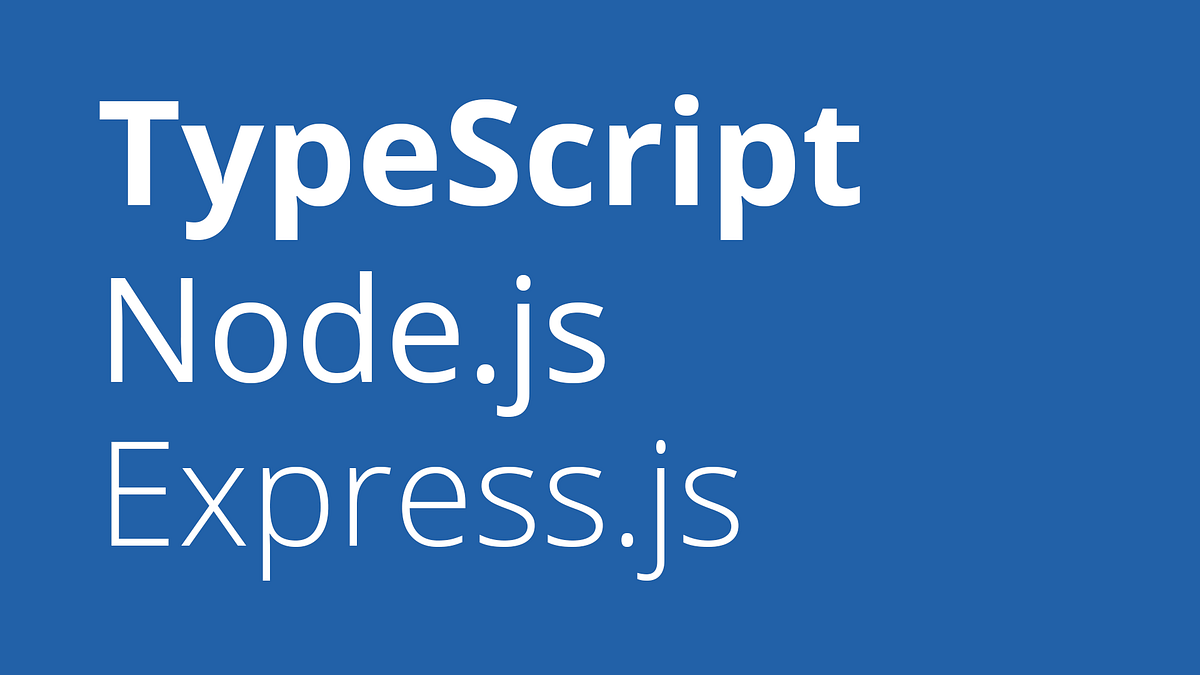TypeScript For Writting Backend
 Amod
Amod
Understanding TypeScript in Backend Development
TypeScript widens the scope of its functions by supporting static typing. Although JavaScript is a dynamic language, TypeScript supports static types which allow developers to specify the types of variables, parameters and return values. This enhanced layer of type safety raises code quality, reduces errors and improves maintainability especially for large projects.
We have already discussed Typescript in previous blog which I posted a while ago(I know its really been a while :/ ) let's go through why typescript should be used as an alternative to javascript.
Benefits of Using TypeScript for Backend Development
1. Type Safety:
TypeScript ensures type safety by catching errors during development, preventing runtime errors that commonly occur in dynamically typed languages. This makes the code more reliable and debugging easier.
2. Improved Developer Experience:
Typescript comes with powerful features such as IntelliSense and Code Navigation that provide better tooling support for developers to understand, navigate, and refactor codebases. As a result, it increases productivity rate and shortens development timelines.
3. Scalability:
As projects grow in complexity, maintaining code becomes increasingly challenging. TypeScript's static typing facilitates code scalability by enabling developers to define clear interfaces and enforce type constraints, ensuring code coherence and consistency as the project evolves.
4. Ecosystem Compatibility:
TypeScript seamlessly integrates with existing JavaScript libraries, frameworks, and tools, allowing developers to leverage the rich JavaScript ecosystem while enjoying the benefits of static typing. This compatibility extends to popular backend frameworks like Node.js and Express.js.
TypeScript in Backend Development
1. Building RESTful APIs with Node.js and Express.js:
TypeScript enhances the development of RESTful APIs by providing type definitions for request and response objects, middleware functions, and route handlers. With TypeScript, developers can ensure that API endpoints adhere to predefined interfaces, improving code readability and maintainability.
2. Database Interactions:
TypeScript simplifies database interactions by providing type safety for database queries and results. Whether using SQL databases like PostgreSQL or NoSQL databases like MongoDB, TypeScript enables developers to write concise and type-safe database queries, reducing the risk of runtime errors.
3. Authentication and Authorization:
Implementing authentication and authorization mechanisms is important for safe backend applications. TypeScript's type safety allows for authentication middleware, user sessions and ensures important operations are handled securely and efficiently.
4. Error Handling and Logging:
Error handling and logging are integral parts of backend development. TypeScript's strong typing helps error handling by defining custom error types, handling exceptions, and logging errors with precision.
Practical Applications of TypeScript
TypeScript has gained significant popularity in real-world industry applications across various domains, ranging from web development to enterprise software solutions. Its adoption is by several factors, including developer productivity, improved code quality, scalability. Here are some examples of TypeScript's usage in real-world applications across different industries:
Web Development:
Angular Framework: TypeScript is the primary language used for building applications with the Angular framework. Angular's strong typing coupled with TypeScript's features, enable developers to build large-scale web applications efficiently.
React Applications: While React primarily uses JavaScript, many developers and organizations choose TypeScript for building React applications. TypeScript's (again same features!) static typing and tooling support enhance code quality, improve developer productivity, helps smoother code maintenance in React projects.
Full-Stack Development:
- MEAN/MERN Stack: TypeScript is commonly used in MEAN (MongoDB, Express.js, Angular, Node.js) and MERN (MongoDB, Express.js, React, Node.js) stack applications. TypeScript provides a consistent development experience across the entire stack, enabling developers to leverage Typescript featues for both frontend and backend components of the application.
Enterprise Applications:
Financial Services: Many financial institutions and fintech companies use TypeScript for building critical applications, trading platforms, and financial analytic tools. TypeScript's type safety, scalability, and ecosystem compatibility make it easy for developing secure, high-performance software solutions in the financial services industry.
Enterprise Resource Planning (ERP) Systems: TypeScript is used in the development of enterprise resource planning systems, which integrate various business processes and functions into a single platform. TypeScript's features enable developers to build scalable, customizable ERP solutions built for specific business needs.
Cloud Computing and Infrastructure:
- Serverless Computing: TypeScript is used in serverless computing platforms such as AWS Lambda Functions. TypeScript's static typing and modular design helps the development of serverless applications, microservices, and event-triggered architectures, enabling easy deployment and scalability in cloud environments.
These examples demonstrate the applications of TypeScript in real-world industry scenarios, highlighting its diversity, efficiency, and suitability for building a wide range of software solutions in different domains and platforms.
Conclusion:
So TypeScript with additional features than Javascript is better option to write backend of the application and more importantly it is being used for building real world applications and a popular option among developers and architects!
Let me know your thoughts in the comments below.
#Explore. Code. Evolve.
Happy coding! 😄
Subscribe to my newsletter
Read articles from Amod directly inside your inbox. Subscribe to the newsletter, and don't miss out.
Written by
